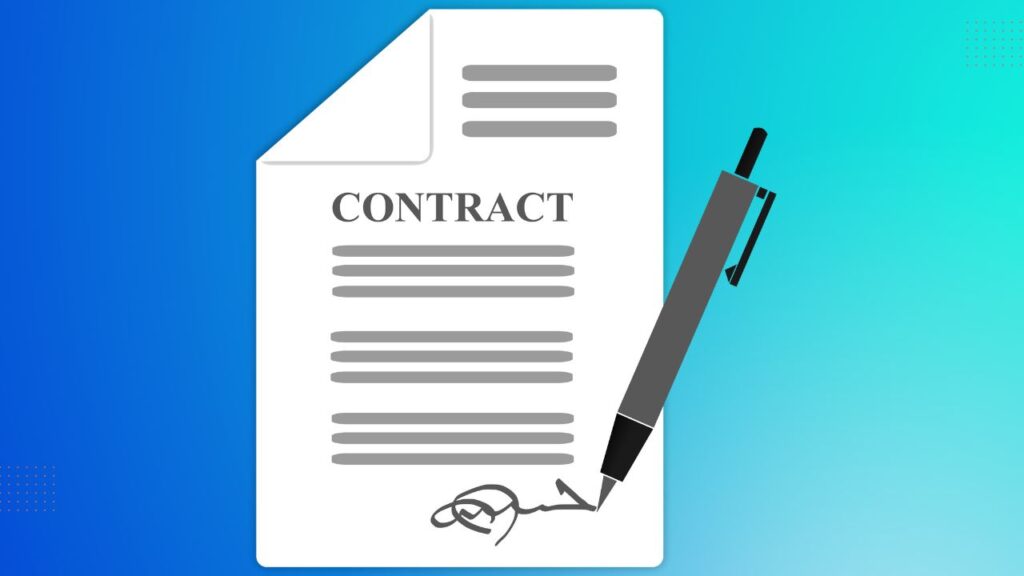Are you tired of feeling like you’re always overpaying for rent? Do you feel like you’re stuck in a cycle of never-ending rent increases?
You’re not alone.
In fact, according to a recent study by Apartment List, 56% of renters feel that they are paying too much for their apartments.
This is a particularly pressing issue for millennials who are just starting their careers and may be dealing with student loan debt or other financial obligations.
But the good news is that there is a way to negotiate your rent and potentially save hundreds, if not thousands, of dollars per year.
Many renters are intimidated by the idea of rent negotiation and assume that the price they are given is set in stone.
However, with a little bit of research and preparation, you can feel confident in your ability to negotiate a better deal.
In this article, we will provide you with tips and tricks on how to negotiate rent like a pro.
We’ll cover everything from researching the rental market to making your pitch and reaching a deal.
We’ll also touch on other considerations, such as negotiating other terms of the lease and understanding your rights as a tenant.
By the end of this post, you’ll feel empowered to take control of your rental situation and get the best deal possible.
1. Research and Preparation
Before you start negotiating your rent, it’s important to do your homework.
This means researching the rental market in your area and preparing your negotiation tactics.
Here’s what you need to know:
1.1. Research the rental market and know the average rent in your area
To research the rental market in your area, you can use online resources like:
- Zillow
- Trulia
- Rentometer
These resources will give you an idea of what the average rent is for your desired type of apartment, as well as what amenities and features are typically included in the price.
Use this information for your negotiations.

1.2 Prepare your negotiation tactics
To prepare your negotiation tactics, consider the following:
1.2.1 Determine your budget and stick to it
Before you start negotiating, determine what you can realistically afford to pay in rent each month.
This will help you stay focused during your negotiations and avoid agreeing to a higher rent than you can afford.
1.2.2 Prepare your rental history and credit score
Landlords are more likely to negotiate with tenants who have a good rental history and credit score.
Before you start negotiating, make sure you have copies of your rental history and credit report.
Highlight any positive rental experiences you’ve had in the past, and be prepared to explain any negative items on your credit report.
1.2.3 Research comparable properties in the area
Knowing what comparable properties in the area are renting for, can give you leverage during your negotiations.
Look for properties that are similar in size, location, and amenities to the apartment you’re interested in.
Use this information to make a case for why you should pay a lower rent.
1.2.4 Decide on potential concessions or add-ons that you want
Finally, think about potential concessions or add-ons that you want before you start negotiating.
For example, you may be able to negotiate a lower rent if you’re willing to sign a longer lease, pay rent upfront, or take care of some maintenance responsibilities.
Make a list of these potential concessions so you’re prepared to bring them up during your negotiations.
Example List: Potential Concessions
- Sign a longer lease
- Pay rent upfront
- Take care of some maintenance responsibilities
Overall, the key to successful rent negotiation is preparation.
Do your research, know your budget, and have a clear idea of what you want before you start negotiating.
This will help you stay focused and confident during your negotiations, and increase your chances of getting the best deal possible.
2. Initial Communication
Once you’ve done your research and prepared your negotiation tactics, it’s time to make initial contact with the landlord or property manager.
Here’s what you need to know:
2.1 Contact the landlord or property manager to schedule a meeting
The first step is to reach out to the landlord or property manager to schedule a meeting.
You can do this over the phone, via email, or in person if you’re already at the property.
Be polite and professional, and let them know that you’re interested in renting the apartment but would like to discuss the rent.

2.2 Prepare your elevator pitch
When you meet with the landlord or property manager, you’ll want to have your elevator pitch ready.
This is a short, persuasive speech that highlights your strengths as a tenant and makes a case for why you should pay a lower rent.
Here’s what to include:
2.2.1 Highlight your rental history and credit score
Start by highlighting your rental history and credit score.
Let the landlord know that you’re a responsible tenant who pays rent on time and takes care of the property.
If you have a good credit score, mention that as well.
This will give the landlord confidence in your ability to pay rent and take care of the apartment.
2.2.2 Mention your willingness to sign a longer lease or pay rent upfront
Next, mention your willingness to sign a longer lease or pay rent upfront.
Landlords value stability and predictability, so offering to sign a longer lease can make you a more attractive tenant.
Similarly, offering to pay rent upfront can give the landlord peace of mind knowing that they’ll have guaranteed income for the next few months.
2.2.3 Mention other offers you have received in the area
Finally, mention other offers you have received in the area.
If you’ve looked at other apartments and have received lower rent offers, let the landlord know.
This will give you leverage during your negotiations and make it clear that you’re serious about getting a good deal.
Sample Elevator Pitch:
| Strengths | Examples |
| Rental History | I’ve been a responsible tenant for the past five years and have never missed a rent payment. |
| Credit Score | My credit score is 750, which shows that I’m financially responsible and can be trusted to pay rent on time. |
| Willingness to sign a longer lease | I’m willing to sign a two-year lease to provide stability for both of us. |
| Willingness to pay rent upfront | I’m willing to pay the first six months of rent upfront to give you peace of mind. |
| Other offers received | I’ve looked at other apartments in the area and have received offers for a lower rent. |
Overall, the initial communication with the landlord or property manager is crucial for setting the tone for your rent negotiations.
Be prepared, professional, and confident, and use your elevator pitch to make a case for why you should pay a lower rent.
3. The Negotiation Meeting
Now that you’ve scheduled a meeting with the landlord or property manager and prepared your elevator pitch, it’s time to negotiate the rent.
Here’s what you need to know:
3.1 Dress professionally and arrive on time
When you arrive at the meeting, make sure you dress professionally and arrive on time.
This shows the landlord that you’re serious about renting the apartment and respect their time.
Dressing professionally also gives you an air of confidence and can help you feel more prepared for the negotiation.

3.2 Start with small talk and build rapport
Once you’re in the meeting, start with some small talk to build rapport with the landlord or property manager.
Ask about their day or their weekend, and try to find some common ground.
Building a good relationship with the landlord can make them more willing to negotiate with you and can help you find common ground during the negotiation.
Examples of Small Talk Conversation Starters:
| Topic | Examples |
| Weather | “It’s really hot outside today, isn’t it?” |
| Local events | “Did you hear about the festival happening downtown this weekend?” |
| Hobbies | “I noticed you have a guitar in your office. Do you play?” |
| Pets | “I saw a picture of your dog on your desk. What kind of breed is it?” |
Overall, the negotiation meeting is where you’ll be able to make your case for a lower rent.
By dressing professionally and building rapport with the landlord, you can set a positive tone for the negotiation and increase your chances of getting a better deal.
3.3 Make Your Pitch
During the negotiation meeting, you’ll have the opportunity to make your pitch for a lower rent.
Here are some key points to include:
3.3.1 Mention your budget and stick to it
Remind the landlord or property manager of your budget and stick to it.
Let them know that you’re looking for a rental that fits within your means and that you can afford to pay the rent on time each month.
By being clear and upfront about your budget, you can set the tone for a productive negotiation.
3.3.2 Explain why you are a great tenant
Highlight your rental history, credit score, and any other positive attributes that make you a great tenant.
Let the landlord know that you’re reliable, and responsible, and would be a great addition to their rental community.
This can help build trust and credibility during the negotiation.
3.3.3 Mention your research and comparable properties
Bring up the research you conducted earlier and any comparable properties in the area that offer lower rents or better amenities.
Use this information to make a case for why you should be paying less for the apartment.
Show the landlord that you’re informed and serious about finding a good deal.
3.3.4 Offer potential concessions or add-ons
Finally, offer potential concessions or add-ons that can sweeten the deal for the landlord.
For example, you could offer to sign a longer lease or pay rent upfront in exchange for a lower monthly rent.
You could also offer to take care of minor repairs or maintenance around the rental property.
These concessions can show the landlord that you’re willing to compromise and can help you secure a better deal.
By making a strong and persuasive pitch, you can increase your chances of negotiating a lower rent.
Remember to stay respectful and professional throughout the negotiation, and be willing to compromise where necessary.
With the right approach, you can get the best deal possible on your rental property.
4. Reaching a Deal
4.1 Listen to the landlord’s counteroffer
After you have made your pitch, the landlord or property manager may come back with a counteroffer.
It’s essential to listen carefully to their response and understand their perspective.
Don’t be afraid to ask questions or seek clarification if needed.

4.2 Negotiate and find a middle ground
If the initial offer is not what you hoped for, it’s time to negotiate.
Be respectful but firm in your negotiations, and try to find a middle ground that works for both parties.
Remember, the landlord wants to fill the rental unit just as much as you want to find a new home.
Some negotiation tactics you could use include offering to sign a longer lease, pay a higher security deposit, or take on some maintenance responsibilities in exchange for a lower rent.
4.3 Make sure all terms are in writing before signing
Before you sign the lease, ensure that all the terms of your agreement are in writing.
This includes the rent amount, lease term, security deposit amount, pet policies, maintenance responsibilities, and any other agreed-upon concessions or add-ons.
Having everything in writing ensures that there are no misunderstandings or surprises down the line.
Don’t hesitate to ask questions or seek legal advice if you need it.
According to a survey conducted by Apartment List, almost 80% of renters who negotiate their rent are successful in getting a lower rate.
With some research, preparation, and negotiation skills, you too can negotiate a better deal on your rent.
Remember, it’s not just about saving money in the short term, but it’s also about securing a more affordable rental for the long term.
5. Other Considerations
5.1 Consider negotiating other terms of the lease
While negotiating the rent is the primary focus, don’t forget to consider other terms of the lease that can affect your finances.
Here are some factors to consider:
5.1.1 Maintenance responsibilities
Who is responsible for maintaining the rental unit and appliances?
Is there an agreement in place for repairs and maintenance, and who pays for it?
These are important questions to ask and negotiate, as maintenance costs can add up quickly.

5.1.2 Renewal terms
If you plan on staying in the rental for more than a year, it’s crucial to negotiate the renewal terms of your lease.
Make sure to negotiate the renewal rent rate and the length of the lease term.
Knowing your options upfront can help you make informed decisions when it comes time to renew your lease.
5.1.3 Early termination clauses
Life happens, and sometimes you may need to move out of your rental unit before the lease ends.
It’s essential to negotiate an early termination clause that is fair and reasonable.
This includes knowing the consequences of breaking the lease, such as penalties or forfeiting the security deposit.
By considering these factors and negotiating them upfront, you can avoid unexpected costs and protect your finances.
5.2 Understand your state’s rent control laws
It’s important to understand the rent control laws in your state.
Rent control laws vary by state and can greatly affect your negotiating power.
Rent control laws limit the amount that landlords can increase rent, and in some cases, require landlords to renew leases.
This means that if you live in an area with strong rent control laws, you may have less negotiating power since landlords cannot increase the rent as much as they might in other areas.
On the other hand, if your area has weak or no rent control laws, you may have more negotiating power to keep rent increases in check.
5.3 Know your rights as a tenant
It’s also important to know your rights as a tenant.
Tenant rights vary by state, but in general, tenants have the right to a safe and habitable living environment, protection against discrimination, and the right to privacy.
It’s important to understand your rights and communicate them with your landlord during the negotiation process.
For example, if your landlord is hesitant to make repairs or address safety concerns, you can remind them of their obligation to provide a safe and habitable living environment.
In addition, knowing your rights can also help protect you against unfair or illegal practices, such as being charged excessive fees or being evicted without proper notice.
Be sure to familiarize yourself with the laws in your state and communicate with your landlord to ensure your rights are being respected.
Bottom Line…
By now, you should have a solid understanding of how to approach your next rental negotiation with confidence and strategy.
Remember, the rental market is highly competitive, and there are many factors to consider when negotiating rent.
By doing your research, preparing your tactics, and effectively communicating your needs and wants, you can put yourself in a better position to secure the best possible deal for your rental.
Don’t forget to consider other lease terms and know your rights as a tenant.
As a millennial, you have the power to make informed decisions and advocate for yourself when it comes to your personal finances.
With these tips and tricks in mind, go forth and negotiate your rent like a pro!
